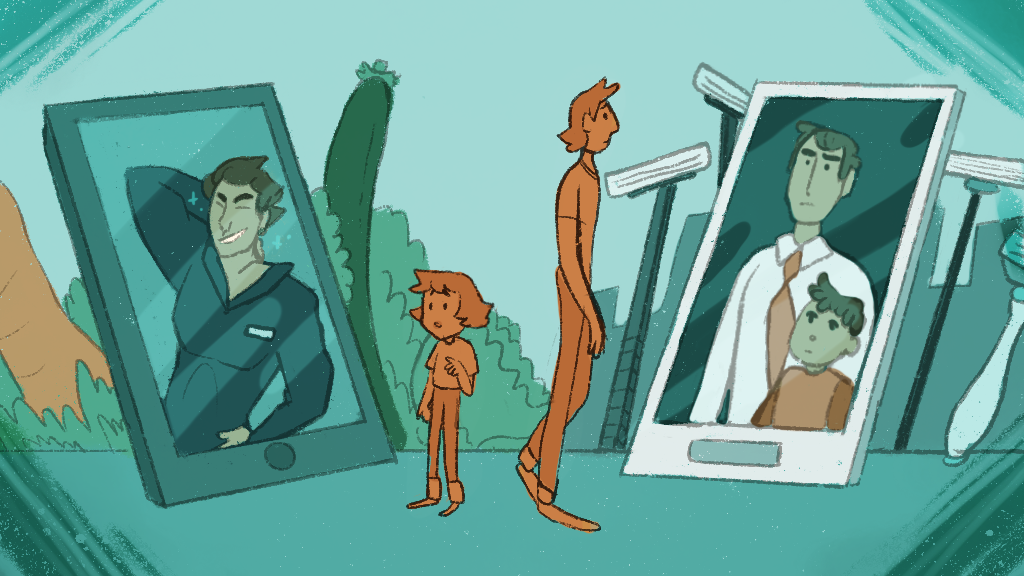Being a man can be difficult. Especially today, men are expected to behave in ways that are contradictory.
Media can get caught up in the contradictions as well. A perfect example of this dichotomy is between Gillette's recent commercial which challenges toxic masculinity and the behaviors it encourages in men and PETA's Commercial in which a bunch of men all have foot long vegetable phalluses because they are vegan.
Gillette
Gillette's commercial looks at the idea that men can do and be better. Through a few shots of men, often interacting with younger boys or friends, they address the idea that men often are allowed to engage in bad behavior under the phrase “boys will be boys,” and this therefore excuses a lot of toxic behaviors.
In the commercial a man calls out his friend for nearly harassing a random woman on the street, and another breaks up a fight between two kids while walking with his son. The commercial also addresses men's fears of longevity and insincerity and how it's often dismissed or even played into humor.
In short, they ask the question of: could men be better? Unfortunately, and yet also unsurprisingly, the answer has been a resounding “no.”
Gillette's commercial became the 28th most disliked video on Youtube around its time of release, as male activists criticized the video as being a blatant attack against men and argued that the toxic behaviors mentioned are what it means to be a man.
The video also received backlash for giving into "SJW (social justice warrior) rhetoric," which is often the category that social progressivism, like political correctness and treating women well, falls under. This really shouldn’t be too much of a surprise, because one of the most unfortunate parts of toxic masculinity is the inherent dismissal, sometimes on combative terms, of anything that threatens it. This video clearly constitutes such a threat, as it goes against what is "true masculinity", and treats many parts in that masculinity as "bad things," such as harassing women and being aggressive.
PETA
Looking to the PETA commercial, to completely put aside the creator for the sake of not ranting about animal policies, the commercial they released is ... interesting. The video consists of several men who look rather creepy, greasy and overall unpleasant. They are shown jumping, dancing and humping the air, but they all have massive vegetative members adorned with fruitful testes and an assortment of leaves and shredded lettuce pubes.
This commercial argues that being vegan increases sexual stamina, and although we all know "vegans get superpowers," this seems a little weird.
The response to this video in comparison to the Gillette commercial had people more confused and stunned then angry, mainly because nobody could figure out why it was made, what the point was and why they needed to ever see those visuals in general. It was a scarring experience to all of us who have seen it, and it seems to try to appeal to the other side of masculinity — having a magnum dong is what being a man is all about, on top of being able to fornicate all day long.
To quickly address the sexual stamina claim, so we can all get those images further out of our heads, being vegan does not inherently give you more energy. It all depends on diet and calories, which can be attained through any healthy diet.
This commercial also has a fault when it claims to challenge masculinity by saying that “Traditional masculinity is DEAD” while also centering masculinity solely around the ability to procreate. Reducing an entire gender to their genitals has never gone well, for a lot of good reasons, but this video also just came out of the blue attempting to challenge masculinity, yet focusing on one main component of "toxic masculinity": men should be valued by sexual prowess.
Is Traditional Masculinity Dead?
These two commercials both try to appeal to men by attacking the idea of traditional masculinity. One company does this by looking at the problematic and toxic history of how masculinity is reinforced, and the other has ... zucchini dick. Yet out of the two, the former is widely hated by men, and the latter is regarded more with just pure confusion, although the first has more promising ideas and claims. This therefore shows men are more willing to be reduced to a carrot, spinach and limes arranged in crude ways, not to address that being raised in a culture of "toxic masculinity" might just be, put simply, toxic.
Masculinity is not inherently bad though.
Men are part of a group which has come under such harsh criticism in recent times for actions inherent in "toxic masculinity" (e.g. the #metoo movement), but this can be improved upon by listening to the criticisms. Gillette tried to address this and I feel bad that it is going to be so widely ignored or hated. But, I also feel happy to see a brand that has spoken out about idea of masculinity and tried to make a difference. PETA, on the other hand, seemed to just take the weirdest possible step they could and their claims were not necessarily helpful to improvement
In the end, one will be ridiculed and one will be laughed at, and ignorance is a lot less helpful than humor. Masculinity is fragile, and unless something is able to question it like Gillette but with less backlash, it will continue to reject all that seeks to improve it.








